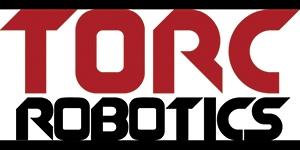Managing Editor, Features and Multimedia
Daimler, Torc Begin Testing Self-Driving Trucks in Virginia

[Stay on top of transportation news: Get TTNews in your inbox.]
Daimler Trucks has begun testing highly automated heavy-duty trucks on Virginia highways in partnership with its subsidiary Torc Robotics, the companies said.
The Sept. 9 announcement comes less than six months after Daimler Trucks agreed to acquire a majority stake in Torc, a pioneer in autonomous vehicle technology. That deal closed in late August.
Daimler said its self-driving test trucks will have a specially trained driver and an engineer in the cab as the vehicles operate in regular traffic on public highways near Blacksburg, where Torc is headquartered.
The companies are working together to test and develop Level 4 automated driving capabilities, which would enable trucks to drive themselves without requiring the driver to provide any input or monitor the road, at least in specific areas and under certain conditions.

Daimler Trucks’ stated goal is to introduce the technology within 10 years to prevent accidents, improve freight efficiency and reduce driver stress and fatigue.
“Bringing Level 4 trucks to the public roads is a major step toward our goal to deliver reliable and safe trucks for the benefits of our customers, our economies and society,” said Martin Daum, head of Daimler’s global truck and bus division.
The manufacturer envisions these automated trucks eventually hauling freight on open highways in hub-to-hub operations.
The Level 4 test trucks will be Freightliner Cascadia models outfitted with Torc’s self-driving software and an array of lidar sensors, cameras and radar to sense the vehicle’s surroundings. The trucks will pull trailers with added weight to simulate a load.
Engineers working on the project nicknamed the initial test truck “Hood” after Mt. Hood in homage to their home in the Pacific Northwest.
The on-road Level 4 testing is part of a renewed push by Daimler to make self-driving trucks a reality.

Daimler's Inspiration truck. The truck manufacturer said the deal with Torc Robotics will bolster effors to commercialize trucks capable of level 4 self-driving. (Daimler Trucks North America)
At the CES technology show in January, Daimler Trucks announced it would invest $570 million to achieve Level 4 within a decade. And in June, the truck maker established an Autonomous Technology Group to consolidate its automated driving activities across the globe, including Torc’s operations in Blacksburg and Daimler Trucks’ locations in Portland, Ore., and Stuttgart, Germany.
“Being part of Daimler Trucks is the start of a new chapter for Torc,” said CEO Michael Fleming, who was among a group of Virginia Tech engineering students that founded the self-driving vehicle company in 2005.
“Our whole team is thrilled to be working alongside our Daimler colleagues as we pursue the commercialization of Level 4 trucks to bring this technology to the market, because we strongly believe it can save lives,” Fleming said.
Moving forward, the developers will work to combine Daimler’s commercial truck technology with Torc’s expertise in engineering automated vehicles.

A Freightliner Cascadia at Torc headquarters in Blacksburg, Va. (Daimler Trucks North America)
“We look forward to writing history together,” said Roger Nielsen, CEO of Daimler Trucks North America. “The U.S. highways are the perfect place to develop automated driving technology.”
DTNA said it is designing a truck chassis tailored specifically for highly automated driving, including redundant systems to help ensure safety and reliability.
The truck maker also said it is building an infrastructure to support its testing of initial applications for Level 4 trucks. This infrastructure will include a control center as well as logistics hubs along dense freight corridors where many of the truck maker’s customers operate, the company said.
While Daimler Trucks pursues Level 4 automated driving for the decade ahead, the truck maker currently is in the process of introducing Level 2 technology that automates both lateral and longitudinal control, but still requires the driver to remain engaged at all times.
DTNA will offer active steering capabilities with the 5.0 version of its Detroit Assurance safety technology though Active Lane Assist, which will include automatic lane centering and lane-departure protection features. Active Lane Assist will become broadly available in the first quarter of 2020.




